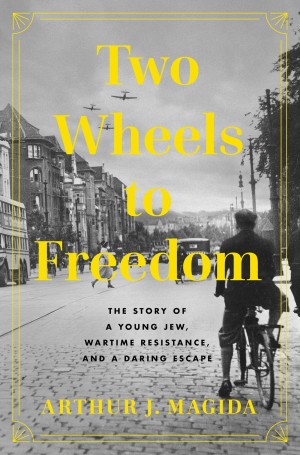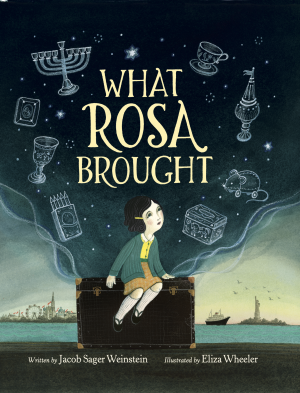What can happen to our lives when we live in a regime determined to oppress us? This powerful question underlies the shattering story of the Kuehn family.
The Kuehns were prominent members of Berlin society when the Nazis took hold of the country, and their daughter, secretly half-Jewish, became romantically involved with the Nazi leader Joseph Goebbels. When he found out the truth, he sent the entire family away — not to a concentration camp, as they had feared, but to someplace worse: an establishment in Hawaii from which they were forced to spy and pass secrets to the Japanese, secrets that led to the devastating attack on Pearl Harbor.
Now, two generations later, a daughter who knew nothing about the family’s dark past found a way to wring the story from her father, who knew everything. The result is this fascinating book, told with the tempo and tone of a masterful symphony.
The story began with a letter from a man who said he was working on a movie about World War II and wanted to ask a few questions about the author’s father. The author, Christine Kuehn, thought he had the wrong family. Kuehn wasn’t such an uncommon name, after all. Maybe he really wanted to talk to someone else? So she asked her father. And to her shock, he burst into tears.
Kuehn tells us exactly what her father told her, her narrative moving back and forth between her trauma at the discovery of the family’s secret involvement with the Japanese and the hidden spy operation they had set up in their home. We learn about how normal her home life was, with her teacher mother and businessman father. Yes, her father had emigrated from Germany when he was a child. But otherwise, he was just like everyone else. Until the letter arrived.
With Kuehn’s insights into the way her father’s parents had spied for the Japanese, we learn intricate details about the background of the Pearl Harbor attack that deeply enhance our understanding of the events of Dec. 7, 1941. In the calm yet energizing prose of a seasoned journalist, she takes us through her shock at first hearing the word Nazi applied to her grandfather, and how she came to terms with the underlying story that made her comprehend the murderous, coercive forces behind his actions.
This is Kuehn’s first book, but her writing flows so naturally it is easy to forget that she is writing about not only an inflection point in history but a secret that has weighed heavily on her own family. Because of this duality, the story has a particularly strong emotional impact, and readers will be carried along with both the tension and the relief, as Kuehn expands her story with shocking detail.
Most of the information passed on by the small army of people spying for Japan and Germany has been hidden for decades, and Kuehn brings much of it into our view. For example, she tells us about the light signals sent by her grandparents that directed the Japanese planes to their targets, and how, from their house overlooking Pearl Harbor, they gathered and transmitted information on the American ships stationed there and their defenses.
Appendices of primary sources, including personal and official letters and newspaper articles, bring the reader more directly into the action, and, along with detailed notes and a useful index, add significant gravity to the book.
Linda F. Burghardt is a New York-based journalist and author who has contributed commentary, breaking news, and features to major newspapers across the U.S., in addition to having three non-fiction books published. She writes frequently on Jewish topics and is now serving as Scholar-in-Residence at the Holocaust Memorial & Tolerance Center of Nassau County.





